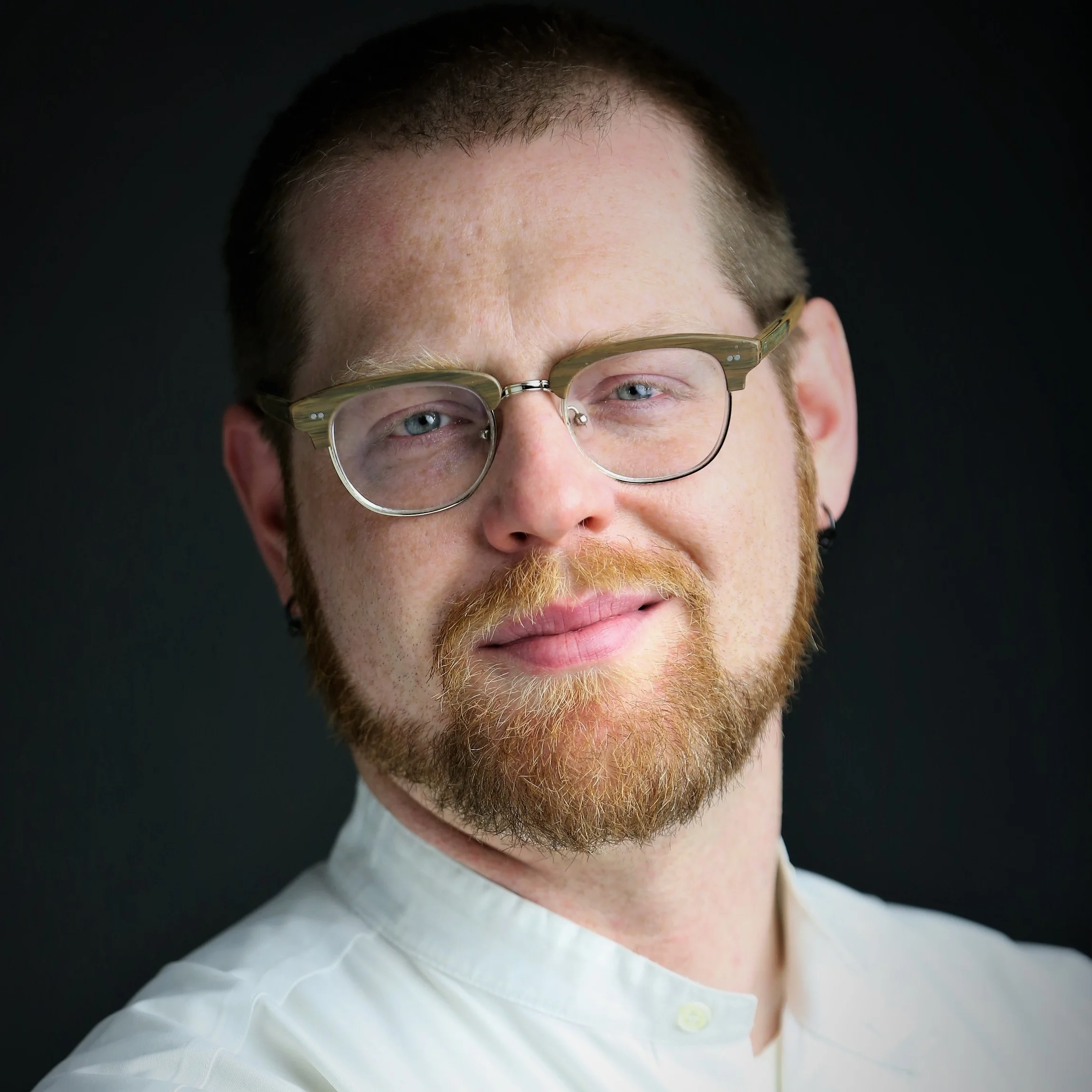What do people mean by "theopoetics"?
Note
This list is very skewed toward a Christian worldview and is largely comprised of academic, white, male voices, whose work dominated writing on the topic for years. That is changing. We find the work here to be a useful starting place for people wanting to track the ideas over time and we think this list is not as diverse as it should be. We're actively working to expand this resource .
ARC's Definition
When we're being technical, the way that ARC uses the word has four components. It is (1) an emphasis, style, and positive concern for the intersection of religious reflection and spirituality with the imagination, aesthetics, and the arts, especially as (2) it takes shape in ways that grows community, (3) focuses on material change, and (4) affirms the importance of embodiment.
More generally, theopoetics is not an alternative to theology. It's a way to do religious reflection that gives greater attention to form, genre, and method. It validates art, experience, and the body as a source of religious reflection and is concerned with the emotional and "pre-rational" impact as well as the concrete consequences of religious reflection. Art and ideas should matter.
James Hill Jr.
When I use the term theopoetics to describe the black Christian experience in America, I am referring to the ability of black religious communities to imaginatively express their faith convictions through art, song, poetry, oral witness, and other embodied practices. Key to understanding the rich theopoetical tradition of black religious communities is the manner in which their theopoetic practices were used to inaugurate alternative worlds of anti-colonial, socio-political possibility; worlds that were often sequestered from them by the necropolitical forces surrounding them… Through their songs, tears, and collective imagination, the black citizens of Marion and Selma provided Americans with an ample opportunity to beat their swords into plowshares and their theological textbooks into freedom songs and, perhaps for the first time ever, play the tunes written in their collective flesh …
Kate Common
Rather than focusing on a specific marginalized community, theopoetics discourse focuses on a marginalized epistemology — the poetic. While other liberation theologies point to this epistemological marginalization, theopoetics is built around it. Its focus of energy around this singular topic is important because it illuminates the inherent blind spots of rational-only discourse. As a feminist theologian and professional artist, it is not enough for me to say that women and other marginalized voices have been silenced and oppressed in our current global imperial system, I must also insist that poetic practices and ways of knowing have also been silenced. Theopoetics as a discourse helps me to do this by connecting me to other conversations specifically dealing with this topic.
Patrick Reyes
Based on the Nahuatl definition of the divine and the role poetics plays in the Mexican community to reflect theologically, I define theopoetics as “the creative language of a community and its members to express what is above and what is beyond”… This means that theopoetics is a practice of making words about God(s), tracking the spirit of the community, and building theological models to wrestle with the day-to-day struggle of the community…
Sandra Schneiders
To begin with, we need to recognize that the discourse about “theopoetics” in general and particularly in relation to the interpretation of Scripture is a quite recent development arising at the intersection of theology and literary studies much like “biblical spirituality,” which arises at the intersection of biblical studies and spirituality. The interactive meeting ground of literary biblical studies, theology, and spirituality is precisely theopoetics or a theory of the spiritually transformative power of biblical texts as texts, actualized through a certain kind of reading or interpretation . . . It would probably be accurate to say that theopoetics is the literary or textual face of the wider concern with theological aesthetics as an approach to spirituality.
L. Callid Keefe-Perry
…[theopoetics is] an acceptance of cognitive uncertainty regarding the Divine, an unwillingness to attempt to unduly banish that uncertainty, and an emphasis on action and creative articulation regardless. It also suggests that when the dust has settled after things have been said and done in the name of God, the reflection and interpretation to be done ought to be grounded in dialogue and enacted with a hermeneutic of hospitality and humility, an acceptance of cognitive uncertainty regarding the Divine, an unwillingness to attempt to unduly banish that uncertainty . . .
Catherine Keller
There are four theopoetic oscillations or themes:
Theopoetics is not theology-as-usual nor is it “not theology.” It rhythmically destabilizes the certainties of traditional theological inquiry.
God-talk is mindful of its own edge, e.g., the unspeakable vs. the word, or between silence and language itself. Process theopoetics is the steady work of auto-deconstruction: the critique of abstractions in order to keep discourse vibrant and relevant.
This discourse occurs in a space between theopoetics and theopolitics. Poiesis is the making of something that previously did not exist, a creative practice. It is an action, a poem.
Theopoetics is not just involved with theology-as-method, but also with the Logos of scripture. There is a multiplicity of oscillations waiting to be unleashed. Theopoetics is in one sense polyphilia: the love of and for multiplicity.
J. Denny Weaver
A non-poet’s definition of theopoetics might be that it is a hybrid of poetry and theology. But to call it that misses the mark. It is an entire way of thinking. From the side of poetry, it shows that ideas are more than abstractions. They have form – verbal, visual, sensual – and are thus experienced as least as much as they are thought . . . What one learns from the theology side of theopoetics has at least as much importance. One observes that theology is more than an abstraction. It is a way of thinking, visualizing, and sensing images of God. And at that juncture, theologians should become aware that traditional theology . . . is a way to think about the divine but is only one of multiple ways to consider God. Thus for theologians, theopoetics will underscore their (sometimes reluctant) admission that theology is one form of truth but ought not be confused with TRUTH itself.
Scott Holland
Good theology is a kind of transgression, a kind of excess, a kind of gift. It is not a smooth systematics, a dogmatics, or a metaphysics; as a theopoetics it is a kind of writing. It is a kind of writing that invites more writing. Its narratives lead to other narratives, its metaphors encourages new metaphors, its confessions more confessions . . .
Roland Faber
One moves into an “undefined land” in which one experiences differently, begins to think differently, and is encouraged nor just to adopt to, but to create new theological language... Today, I think that not only can we not control this field or region in fact, but that it is of the essence of process theology to be an uncontrollable undertaking in the infinite adventure of God-talk, and consciously so, in modes that I came to name “theopoetics.”
Jeff Gundy
Theopoetics sort of exists in this gap between the spiritual and the religious. It has to do with the effort to articulate what it means to seek God in the present tense, in the hazardous and precious medium of language, informed by what has come before, but not bound to formulas and doctrines.
Matt Guynn
. . . theopoetics, opens up a space for unanticipated dreaming in which the past, present, and future are re-shaped as we reorganize and even re-create our own stories and our relationships with others, the world, and the Divine. … [It] is a style of writing or a theological stance, an artful way of working with language and worldview. The theo-poet uses the occasion of the poem to creatively suggest, ambiguously hint, generously intimate in ways that create space for the reader or the public to face the unknown, engage Mystery, to dream and be transformed.
Stanley Hopper
Theology tends to develop talk about God logically, where the logos is constrained within the model of Aristotelian propositional thinking; whereas theopoetics stresses the poem dimension, the creativity of God, his is-ness, if you wish to theologize it, so that I must move within his own creative nature and must construe him creatively, so that I would become co-creator with God, if you must speak theologically. If I am going to talk about God, I must recognize this mythopoetic, metaphorical nature of the language I use. What . . . theopoiesis does is to effect disclosure [of Being] through the crucial nexus of event, thereby making the crux of knowing, both morally and aesthetically, radically decisive in time… [Like Rilke] . . . we must learn, with trust, to be one with, a breathing with the inhale and exhale of Being, in order that “the god” may breathe through us, and we, through the translation of its breath into song, may be . . . the eyes of becoming and a tongue for Being’s utterance.
Richard D. McCall
. . . Theo-poetic would be a way of doing theology which would derive not only from the content but from the structure of liturgy as act, work (ergon), event. The question which would need to be asked is: What sort of God is one who is active in these events? This, in turn, begs the anthropological question: Who are we who engage in such activities, who thus enact our relatedness to each other and to the One we call God?
Thomas Dailey
As a method of interpretation, theopoetics seeks to articulate the spiritual meaning that comes to us in, by, and through a symbolic experience. It affirms the transcendent significance of inspired texts or religious objects, and attempts to recognize that which God manifests to us in our encounter with the sacred symbol. As a form of religious thinking, theopoetics asserts the primacy of “invention” and “imaginative construction” it is particularly appropriate for considering the experience of ritual and worship.
Erling Hope
I see theopoetics as a kind of cultural / cognitive Third Space between art and religion. It is in this overlapping terrain that we ask our most pressing, most vexing, most honest questions: What is the role of language in human experience, the role of sexuality, the relationship between the individual and the community? It is within this territory that we explore agency and the dynamics of choosing; in which identity is assembled, interrogated and dismantled; in which the imagination is activated and energized in the engagement with the world; in which we both find and make meaning. This is the machinery with which we challenge the degradation of the inner life and the human body, the commodification of social exchange and the natural world at the hands of unbridled consumer culture. This is the instrument by which we console ourselves in our suffering, sustain ourselves in our brokenness, celebrate the pageant of life, and rehearse our own endings.
The name “theopoetics” isn’t always applied, but whether we’re talking about Hendrix’s Band of Gypsies, or Handel’s Messiah; the work of Meredith Monk or the performance art that has come to be known as “The Last Supper”, it is in the fertile terrain between art and religion that humans become most human, and most holy.
Works Cited
Common, Kate. From “Theopoetics via Liberation Theologies, Queer Theory, and Continental Thought.”
2015 Preceedings of The American Academy of Religion: New England and Maritime Region.
Dailey, Thomas F. “Eucharist & the Theopoetics of Encounter according to St. Francis de Sales.”
In Human Encounter in the Salesian Tradition, edited by Joseph Chorpenning, 63–76. Rome: International Commission on Salesian Studies, 2007: pg 3.
Faber, Roland. “Process Theology as Theopoetics.” Lecture at Kresge Chapel, Claremont School
of Theology, February 7, 2006.
Gundy, Jeffrey. “Songs from an Empty Cage: Some Notes on Theopoetics.”
Lecture at Hillsdale College 2/13/12. In John Rasche’s “Gundy speaks at Hillsdale College.”
Guynn, Matt. “Theopoetics: That the Dead May Become Gardeners Again.” Cross Currents (2006): pg 99.
Holland, Scott. How Do Stories Save Us? Grand Rapids: Eerdmans, 2006: pgs. xix-xxi.
Hill, James. “Who But the Lord? A Theopoetic Exploration into the Murder of Deacon Jimmie Lee Jackson and the Necropolitics of the American South in 1965.” Thesis, Southern Methodist University, 2016.
Hopper, Stanley. “Introduction.” In Interpretation: The Poetry of Meaning,
edited by David L. Miller, ix–xxii. New York: Harcourt Brace, 1967: pg. 3.
Hulbert, Steve & Jeanyne Slettom. “Poetics, Post–Structuralism, and Process.”
Process Perspectives: Newsmagazine of the Center for Process Studies 29.1 (2006) 9–10: pg. 9.
Keefe-Perry, L. Callid. Way to Water: A Theopoetics Primer.
Eugene, OR: Cascade Books, 2014.
McCall, Richard. “Liturgical Theopoetic: The Acts of God in the Act of Liturgy.”
Worship, 71 (1997) 399–414: pg. 402.
Miller, David. “Stanley Hopper and Mythopoetics.” Speech delivered 2/5/2000.
For the 40th anniversary meeting of The Society for the Arts Religion and Contemporary Culture. Online: http://www.sarcc.org/Hopper.htm. Accessed. 11/9/2012. Citation from page 6.
Reyes, Patrick. “Theopoetics as sic et..." Syndicate Theology. 2016.
Schneiders, Sandra. “Biblical Spirituality.” In The Bible and Spirituality: Exploratory Essays in Reading Scripture Spiritually, edited by Andrew T. Lincoln, 128–50. Eugene, OR: Cascade, 2013. Citation from page 145.
Weaver, J. Denny. “Series Editor’s Foreword.” In Songs from an Empty Cage: Poetry, Mystery, Anabaptism, and Peace, by Jeffrey Gene Gundry, 13–14. Telford, PA: Cascadia, 2013. Citation from page 13.












